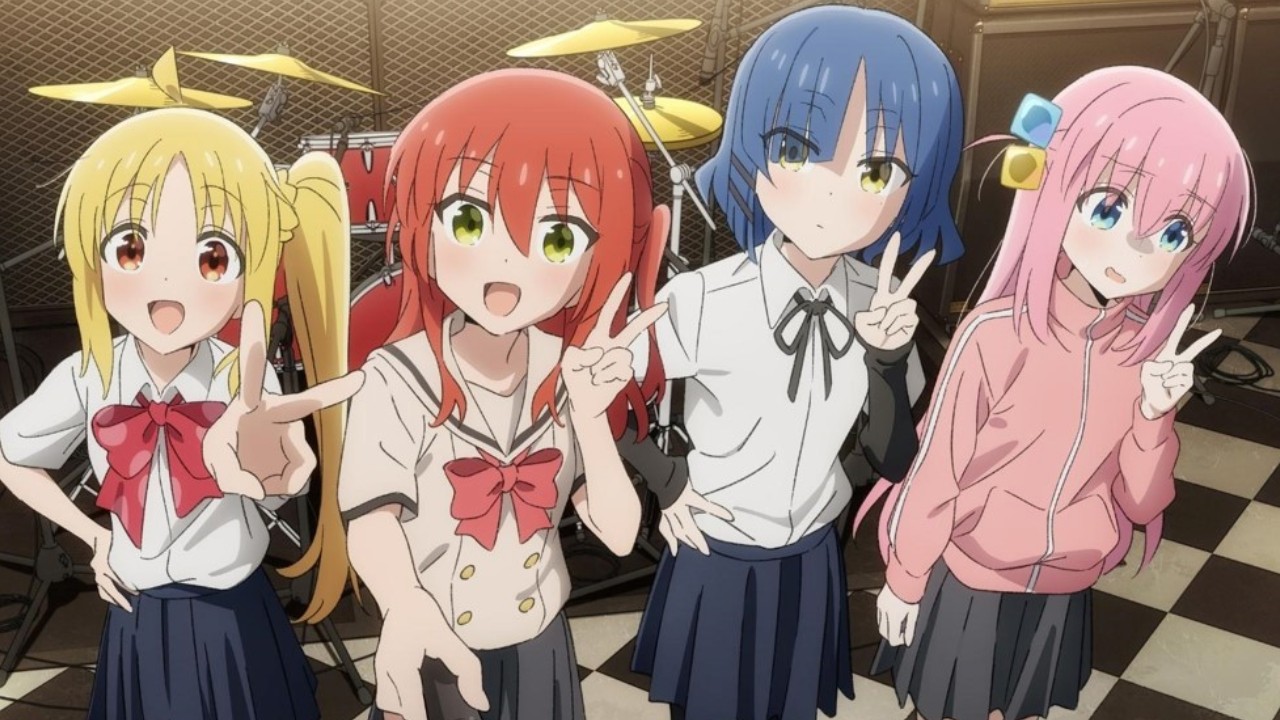Bocchi the Rock!: A Hilarious and Relatable Anime
Bocchi the Rock! has taken the anime world by storm with its unique portrayal of social anxiety and musical perfectionism. Based on a four-panel manga series, this unexpected hit captures the essence of its characters as they navigate through awkward situations. With its realistic depiction of antisocial behavior, Bocchi the Rock! has become a favorite among anime enthusiasts.
A Story of Shyness and Perfectionism
The series revolves around Hitori Goto, also known as “Bocchi”, a high schooler who suffers from crippling social anxiety. Determined to overcome her fears, Bocchi learns to play the guitar and gains a small internet following under the name “guitarhero”. However, face-to-face interactions and pressure still overwhelm her. Everything changes when she meets her first real friend, Nijika Ijichi, an extroverted and cheerful girl who becomes Bocchi’s connection to the outside world.
Together, with two other girls, they form a band called Kessoku Band (meaning “Zip Tie”). Despite Bocchi’s stage fright, they embark on their first live performance, which proves to be a challenge. However, with the support and encouragement of her friends, Bocchi perseveres, determined to improve and prove herself.
Thoughtful Progression and Realistic Portrayal
Bocchi the Rock! utilizes its twelve episodes wisely, providing ample time for character development without rushing or dragging the story. Bocchi’s journey to overcome her introversion and perfect her musical skills is portrayed in a nuanced and relatable manner. She gradually becomes more outgoing, pushing herself into stressful situations like school festivals and even a maid cafe. These moments showcase her growth and resilience as she confronts her fears.
One of the show’s unique aspects is its representation of social anxiety. It balances realistic portrayals with comedic exaggerations, keeping the focus on Bocchi’s struggle while offering lighthearted moments. Through Bocchi’s panic attacks, depicted with distinct art styles, the audience gains insight into her inner thoughts and experiences. These portrayals create a relatable connection for viewers who have encountered similar situations in their own lives.
A Show That Speaks to the Heart
Bocchi’s character resonates with those who struggle with social anxiety. Her persistence in the face of her fears serves as a powerful role model for individuals in similar situations. The show emphasizes the importance of support and patience in overcoming social anxiety, delivering a message of hope. With only twelve episodes, Bocchi the Rock! offers a quick and enjoyable watch for all.
Combining heartwarming moments and clever humor, Bocchi the Rock! caters to a wide audience. Whether you relate to the challenges of shyness, the pursuit of perfection, or simply enjoy a well-crafted anime, this series has something to offer. Don’t miss the chance to experience the laughter and relatability of Bocchi the Rock!
FAQs About Bocchi the Rock!
1. Is Bocchi the Rock! a comedy series?
Yes, Bocchi the Rock! includes comedic elements that add to the overall charm of the show. It blends humor with deeper themes, making it a well-rounded viewing experience.
2. Where can I watch Bocchi the Rock!?
You can watch Bocchi the Rock! on Crunchyroll, both on digital and on demand. It’s easily accessible and a delightful series to enjoy.
3. Does Bocchi the Rock! have a satisfying conclusion?
Yes, Bocchi the Rock! wraps up its story effectively within the twelve episodes. It provides closure while leaving a sense of hope for the characters’ future endeavors.
4. Can I connect with the characters in Bocchi the Rock! even if I don’t have social anxiety?
Absolutely! While the show prominently focuses on social anxiety, its themes of friendship, perseverance, and personal growth resonate with a broad audience.
5. Is Bocchi the Rock! suitable for teenagers?
Yes, Bocchi the Rock! is suitable for teenagers. It addresses relatable struggles faced during high school while promoting empathy, understanding, and self-acceptance.

